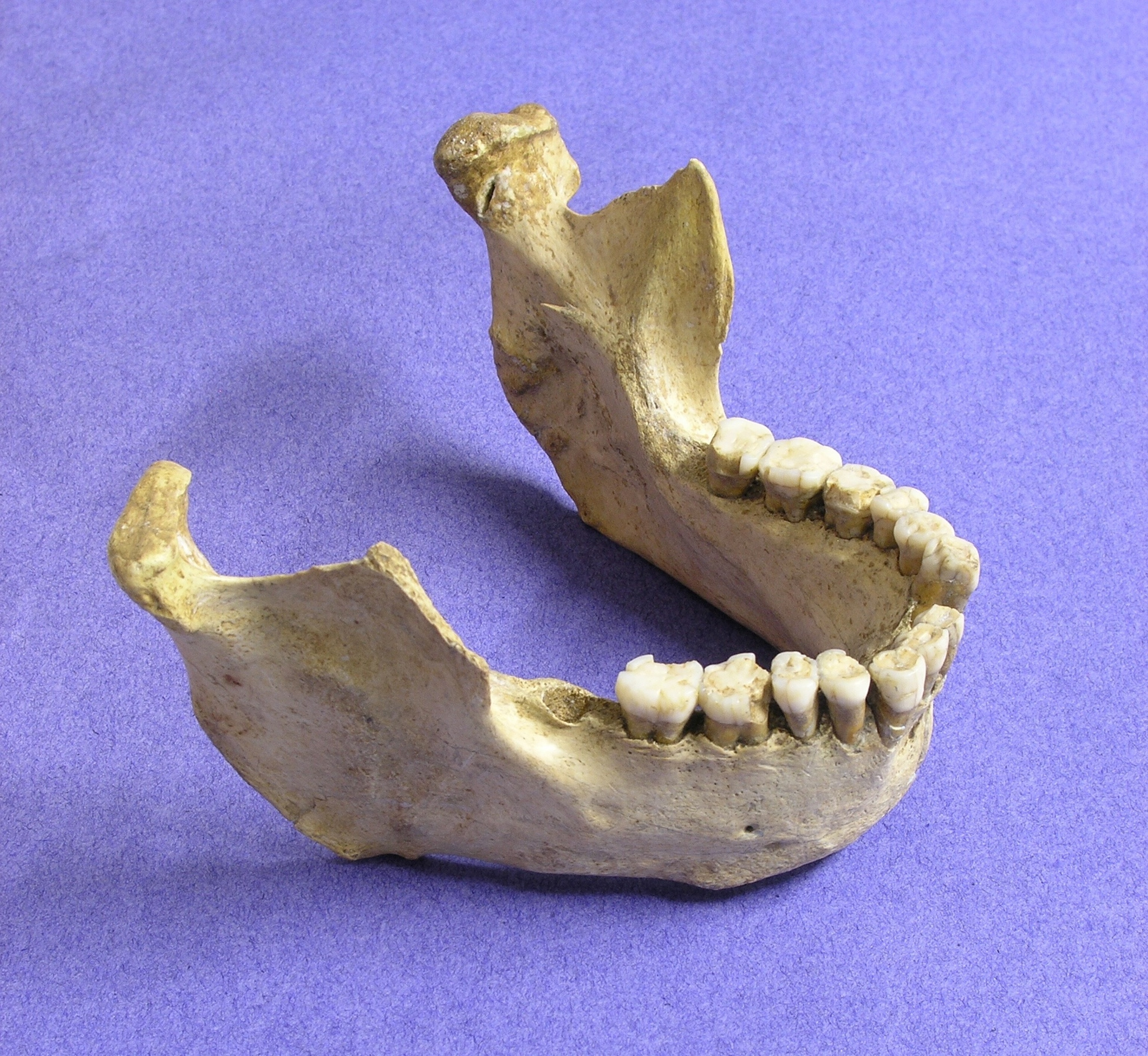
Neanderthals Died Out 10,000 Years Earlier Than Thought, With Help From Modern Humans
New fossil dates show our ancient cousins disappeared 40,000 years ago.
The Neanderthals died out about 10,000 years earlier than previously thought, new fossil dating suggests, adding to evidence that the arrival of modern humans in Europe pushed our ancient Stone Age cousins into extinction. (Read "Last of the Neanderthals" in National Geographic magazine.)
Neanderthals' mysterious disappearance from the fossil record has long puzzled scholars who wondered whether the species went extinct on its own or was helped on its way out by Europe's first modern human migrants.
"When did the Neanderthals disappear, and why?" says Tom Higham of the United Kingdom's University of Oxford, who authored the new fossil dating study published on Wednesday in the journal Nature. "That has always been the big question."
His research bolsters the idea that Europe's first modern human arrivals played a role. The new fossil dating suggests that Neanderthals died out in isolated patches across western Europe, with small areas overlapping in mosaic fashion for thousands of years with the arrival sites of the first modern humans there.
A doughty branch of the early human family, Neanderthals were big-brained and thick-boned hunters who once ranged from Spain to Siberia. Neanderthals begin appearing in the fossil record some 250,000 years ago and were thought to have dwindled to their last refuges about 30,000 years ago.
The results suggest that while Europe was a Neanderthal stronghold about 45,000 years ago, the species vanished within 5,400 years.
Neanderthal Isolation
The new finding relies on 196 samples of animal bones, shells, and charcoal taken from 40 Neanderthal cave sites reaching from Gibraltar to the Caucasus. Largely from prey species such as deer, bison, and mammoth, the bones all bear cut marks from a type of stone blade that Neanderthals used.
"Some previously dated bones were only loosely associated with Neanderthals," Higham says. "We wanted ones we were sure they had handled."
Dating those bones suggests that Neanderthals underwent a population decrease around 50,000 years ago that left them isolated in patches, just about the time that early modern humans arrived.
Competitive pressure from those early Europeans, who hunted many of the same prey species, may have helped isolate Neanderthals, hastening the extinction of a branch of humankind that had previously weathered ice ages and what geneticists call "population bottlenecks."
"In ecology when you see a species that is isolated and losing genetic diversity, you are seeing one that is often on the way out," Higham says. "I think most of my colleagues would agree that having modern humans around played some role in the disappearance of the Neanderthals."
The new arrivals may have spurred an era of stone tool use among the Neanderthals that overlaps with the arrival time of the new migrants.
But a large volcano that erupted in Italy around the time of Neanderthal demise may have hurt both populations. On top of that, a cooling climate event around 40,000 years ago in Europe may have "delivered the coup de grâce to a Neanderthal population that was already low in numbers and genetic diversity, and trying to cope with economic competition from incoming groups of Homo sapiens," says Chris Stringer of the Natural History Museum in London.
Stringer praised the new research: "The overall pattern seems clear—the Neanderthals had largely, and perhaps entirely, vanished from their known range by 39,000 years ago."
In a commentary accompanying the study, archaeologist William Davies of the United Kingdom's University of Southampton said the study "has thrown down the gauntlet, and future researchers will need to try hard to demonstrate Neanderthal survival in Europe after 40,000 years ago."
Bones of Contention
Paleontologist Erik Trinkaus of Washington University in St. Louis was critical, however, calling parts of the study "wrong" and suggesting that some of its samples weren't truly from Neanderthal layers at cave sites.
"This is nothing new or newsworthy," he said by email. "We have long known that the disappearance of Neandertals was a long, slow and complex process."
Trinkaus's research has supported sites in Spain as a last refuge for the Neanderthals, an idea the new study finds no evidence for.
A study co-author and radiocarbon dating expert, Rachel Wood of the Australian National University in Canberra, defended the samples, noting that the cave layer dates conform to independently dated volcanic ash measures. The ages of the layers also made sense, such that "the dates at the bottom of the site are older than those at the top. This is completely different to the situation ten years ago where dates were often completely mixed."
More accurate dating at Neanderthal sites in recent years has generally pushed back the 30,000-year date for Neanderthal extinction, says paleontologist Katerina Harvati of Germany's University of Tuebingen, making the new study results look more reasonable. "In my view this work represents the foundation of a uniform chronological framework for Neanderthal studies," she said by email.
In recent years, studies of Neanderthal genes retrieved from ancient fossils have revealed that early modern humans mated with their cousins in antiquity. This interbreeding is thought to have happened more than 60,000 years ago and has left traces in about one to two percent of the gene maps of modern people of non-African origin.
The Neanderthal genes that turn up in people today are from this older era, after the two species were in contact but well before Neanderthal extinction. The intermingling seen in the new study took place after that early interbreeding era, Higham says. That's not to say that they didn't continue to mate during the later European overlap in ranges, he adds, but any genes transferred during those liaisons haven't turned up so far in genetics research.
Follow Dan Vergano on Twitter.